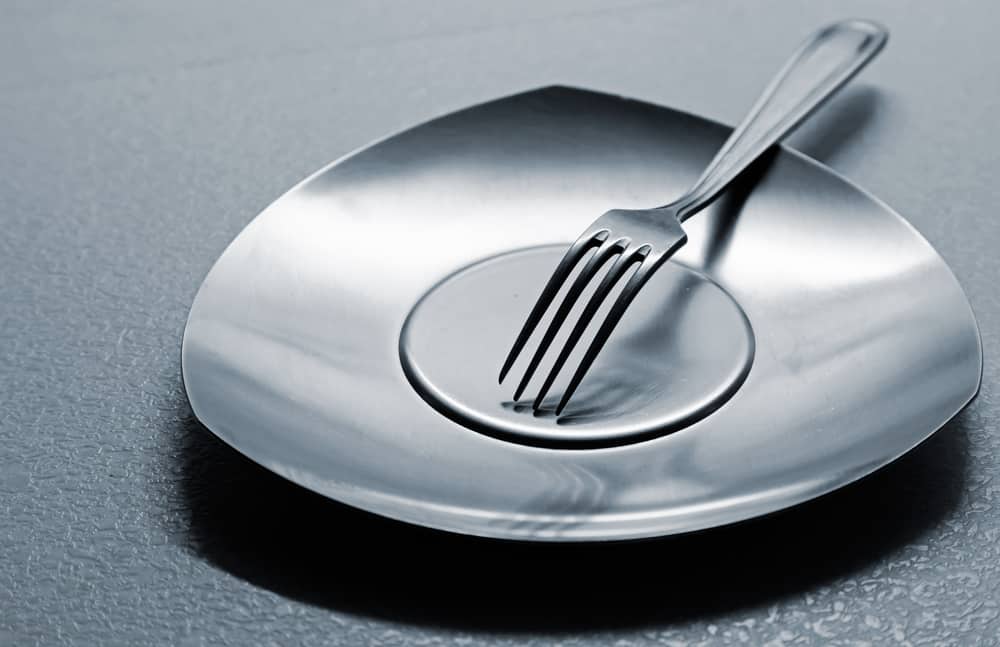Contents:
- Medical Video: What Happens If You Eat NOTHING For 7 Days
- During a hunger strike, the body will use energy reserves
- Stages that occur in the body during a hunger strike
- At the beginning of the hunger strike
- After three days of hunger strike
- More than two weeks
- More than four weeks
- More than six weeks
Medical Video: What Happens If You Eat NOTHING For 7 Days
Surely you have often heard of hunger strikes when many people hold demonstrations. Indeed, hunger strikes are often carried out as a form of protest against the government or the authorities, to attract attention during the demonstration. Of course, this is an inappropriate way because it can torture the person who did it. Want to know what effects can be caused from a hunger strike on the body? See the explanation below.
During a hunger strike, the body will use energy reserves
Every day even every second man needs energy to carry out activities and also for the basic needs of the body in carrying out its functions. So, humans need to eat to get energy.
The average person needs about 1,200 calories per day to maintain the function of organs in the body, supporting the workings of the brain, heart function, and basic growth functions. This is also referred to as basic calorie needs. In addition, humans also need 30% more calories to support their activities.
Well, imagine if humans did not eat at all for several days. Where did humans then get their energy? The body will use energy reserves in the body, diverting all the resources that are in the body to use. However, of course this energy will eventually run out if it is not replaced with energy entering through food.
Stages that occur in the body during a hunger strike
At the beginning of the hunger strike
Right now, you still feel hungry. However, this hunger usually disappears after two or three days of your hunger strike, as described in the document from the California Correctional Health Care Services, reported from Live Science.
At this time, the body will use fat reserves as energy, if the carbohydrate reserves have run out. Many of these fat reserves are stored in the liver and muscles. The use of fat as energy can continuously make the body in a state of ketosis. Causes you to experience bad breath, headaches, and fatigue.
After three days of hunger strike
The body starts using muscle protein as energy. The body will then lose a lot of fat and muscle mass. Electrolyte levels and important nutrients, such as potassium, phosphorus and magnesium will also be lost. A hunger strike carried out for three days can indeed have a bad impact, but is generally not life-threatening.
More than two weeks
At this time, people who go on hunger strikes will experience a lack of protein, difficulty standing, experiencing severe dizziness, lethargy, weakness, loss of coordination, low heart rate, not feeling thirsty, and cold. At this time, the levels of vitamin B1 in the body are also very low, causing cognitive impairment, impaired vision, and muscle damage resulting in decreased motor skills.
More than four weeks
After more than a month of hunger strike, the body will lose more than 18% of its weight. You will look thin. But, not only that, severe medical problems can also be lodged in your body. You may experience difficulty swallowing, hearing and vision loss, difficulty breathing, and failure of organ function begins to develop.
More than six weeks
This can be life threatening. Death can occur due to heart failure or poisoning in the organ system, including sepsis, and infection in the blood. In addition, you may experience psychological changes, which cause impulsive and aggressive behavior, and often confusion.
People who get sick while on a hunger strike may die sooner, because malnutrition can occur in just three weeks. And, if during the hunger strike people who do also refuse fluid intake (drinking water), the bad effects of a hunger strike can take place very quickly. Death may occur in just 7-14 days, especially if the weather is hot.
This is because the body needs water to carry out its functions. Lack of water can cause kidney problems in just a few days, especially if a lot of activity is done.












